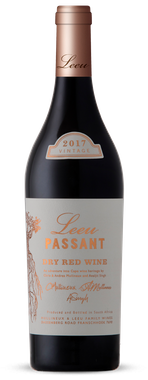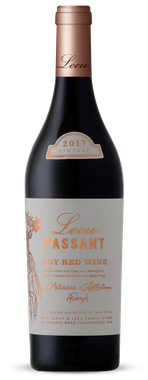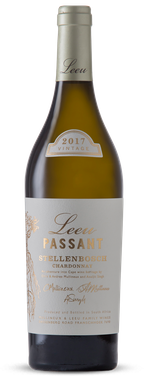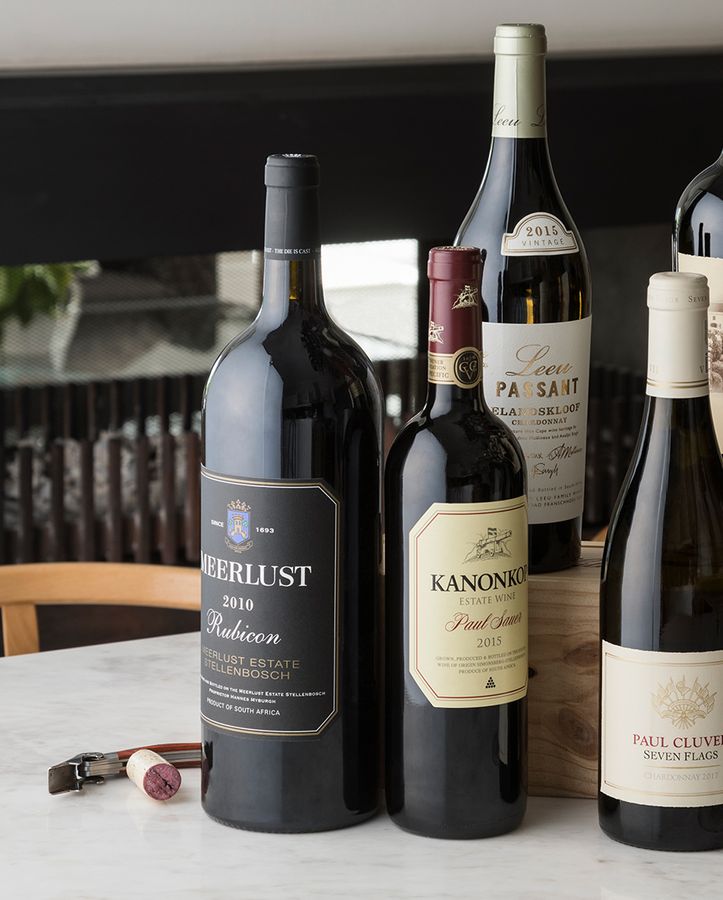Seasons change, harvests wax and wane, winter dormancy sets in, bud break begins in spring, flowering occurs, fruit set begins, veraison occurs and harvest commences once again. Change has been a prominent fixture in South African vineyards for decades. The Mullineux and Leeu Family Wines winemaking team attepted to dissect the changes that have occurred in South Africa’s red winemaking style under time’s spectacular microscope. Chris Mullineux explains that studying the wines made from the 1970’s to date has been a deliberate adventure that has been filled with curiosity, dust and sediment.
“What were the things that went into the wines?” Chris asks.
“In the 1960’s and 1970’s,” he says,”Cabernet Sauvignon and Cinsault were prominent varietals.”
The climatic conditions, soil type as well as breadth of winemaking experience might have been factors that affected which varietals found favour with South African winemakers. Political conditions had concomitant economic effects. Sanctions on trade and export affected wine style in a variety of ways. However, because of a multitude of factors such as policy, cooperatives and imposed quotas, international travel, smuggling, winemakers developed unique winemaking styles and certain varietals found favour. Besides prominent varietals, Chris imparts that large format barrels, minimal interference and malolactic fermentation were among other shared commonalities.
Exploring South Africa's Winemaking Heritage
The Mullineux and Leeu Family Wines winemaking team has embarked upon a colourful challenge in pursuit of exploring South Africa’s winemaking heritage. The team searches for cellars that are for sale – often on Gumtree. Chris confides, “sometimes the wines are incredible, other times not so much.”
The Mullineux team is confidently placed to discern the difference between incredible and not-so-good wine. After completing his Accounting degree at the University of Stellenbosch, Chris Mullineux pursued a second degree in winemaking. He subsequently worked at the helm of the cellar and vineyard team at a boutique winery in Tulbagh. Although he has worked harvests in Cote Rotie, Bandol, the Languedoc, Roussillon and California, his heart was swept away by the Swartland.
Winemaker of the Year
Equally swept away by South African vineyards, Andrea Mullineux was awarded 2016’s International Winemaker of the Year by Wine Enthusiast. Andrea Mullineux’s wine career began with a degree in Viticulture and Oenology at University of California, Davis. She completed harvests in Napa Valley, worked in Stellenbosch and Chateauneuf. While in Chateauneuf, Andrea and Chris met at a festival in Champagne. This serendipitous meeting as well as Andrea’s love for South African wine brought her back to South Africa. The many strides she has made in her winemaking career includes an invitation to the prestigious invitation to join the Cape Winemakers Guild in 2014.
Mullineux Family Wines
Mullineux Family Wines was founded in 2007 by Chris and Andrea Mullineux, as well as business partners Keith Prothero and Peter Dart. Businessman, Analjit Singh became besotted with South Africa upon visiting the country during the 2010 FIFA World Cup with his daughter. His purchase of three adjacent farms in Franschhoek incorporated luxury hospitality portfolio, Leeu Estates. The Afrikaans word, Leeu, or lion in English, is the Sanskrit derivation of Singh. Founding Chairman of Max India Limited, Analjit, purchased Keith’s shares. In 2013, Mullineux Leeu Family Wines was formed from this dynamic new partnership.
Some of the wines in the Mullineux Leeu Family Wines portfolio include The Mullineux Range, The Single Terroir Range, The Kloof Street Range and the Mullineux Leeu Passant wines.
Mullineux Leeu Passant Dry Red 2016 comprises of 37.5% Cabernet Sauvignon from Stellenbosch, 37.5% of high altitude Cabernet Franc from Stellenosch and 25% Cinsault from both Wellington and Franschhoek. This elegant wine was made as a tribute to South Africa’s red winemaking heritage. Aged for two years in large format oak barrels, the body and structure of the wine speak to both the passion of its winemakers as well as the integrity of the fruit. With persistent cherry and earth, this wine allows the fruit to speak for itself.
Chris explains, “Cinsault prefers a warm climate.”
Learning from the Past
Some of the climatic conditions that South African Cinsault has survived are revealed by Chateau Libertas 1982, one of the historic wines that the Mullineux team discovered. The Chateau Libertas 1982 was a blend of Cinsault and Cabernet Sauvignon, a jammy wine with evident red fruit. Another of the wines that spoke to that era, was Alto Rouge 1978. Grown high up on the Helderberg Mountain, the Cabernet Sauvignon, Cinsault and Syrah blend is representative of that era of winemaking. Likewise, Uitkyk Cabernt 1976 was a blend of Cabernet Sauvignon, Syrah as well as Cinsault. Zonnebloem Cabernet 1974 was a blend of Cabernet Sauvignon and Syrah.
Besides plenty of dust and sediment, these wines provide insight about a significant era in South African wine.“We often overlook these wines, in terms of winemaking heritage,” Chris says, “and a lot of these wineries did not have good winemaking record.”However, hope springs. Chris says, “we’ve put a lot of these wines in a blind tasting with some really good Bordeaux, and, I promise you, South Africa has nothing to be shy about.”
Several South African wineries including Neil Ellis, Rustenberg and Le Riche, alongside Mullineux Leeu Family Wines are endeavouring to discover the unique style behind these heritage wines, and in doing so, forge a new future for classic South Afrian wine.
Future - Helderberg
The future includes Mullineux Leeu Passant Chardonnay 2016 from the Helderberg in Stellenbosch. “This is the only vineyard where we have had to wait and wait,” Chris reveals of the Chardonnay. Fresh, with an oyster and iodine aroma, followed by citrus, the Chardonnay is reminiscient of the sea which is in close proximity to the vineyards upon which it is grown. “At the end, I think a human being is like a vineyard, like a child,” Chris says.
Consistently changing, constantly learning and with their feet firmly planted in the very best South African soil, Mullineux Leeu Family Wines is evolving with both a view to the future and a nod to the past.



